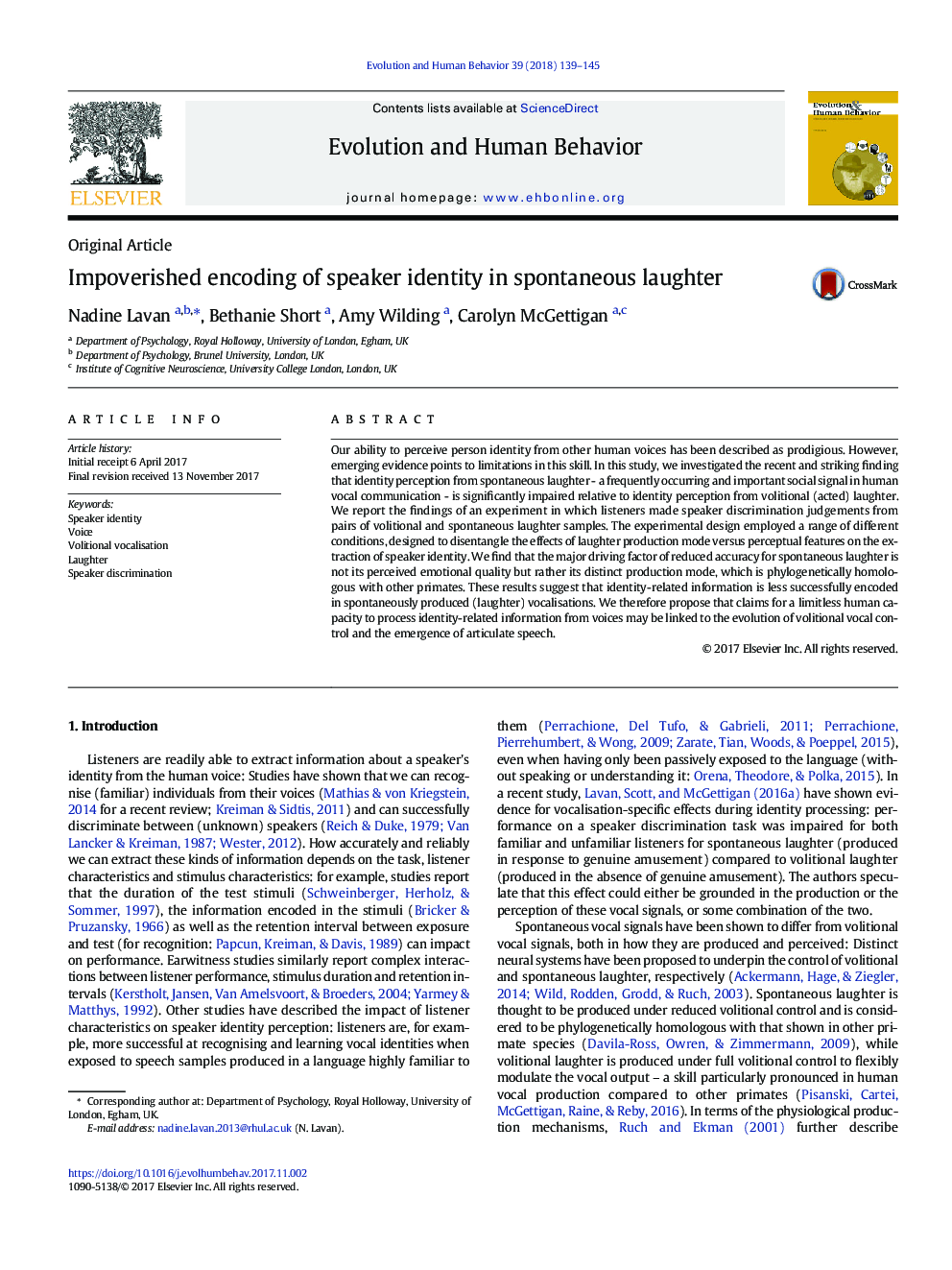| Article ID | Journal | Published Year | Pages | File Type |
|---|---|---|---|---|
| 7316453 | Evolution and Human Behavior | 2018 | 7 Pages |
Abstract
Our ability to perceive person identity from other human voices has been described as prodigious. However, emerging evidence points to limitations in this skill. In this study, we investigated the recent and striking finding that identity perception from spontaneous laughter - a frequently occurring and important social signal in human vocal communication - is significantly impaired relative to identity perception from volitional (acted) laughter. We report the findings of an experiment in which listeners made speaker discrimination judgements from pairs of volitional and spontaneous laughter samples. The experimental design employed a range of different conditions, designed to disentangle the effects of laughter production mode versus perceptual features on the extraction of speaker identity. We find that the major driving factor of reduced accuracy for spontaneous laughter is not its perceived emotional quality but rather its distinct production mode, which is phylogenetically homologous with other primates. These results suggest that identity-related information is less successfully encoded in spontaneously produced (laughter) vocalisations. We therefore propose that claims for a limitless human capacity to process identity-related information from voices may be linked to the evolution of volitional vocal control and the emergence of articulate speech.
Keywords
Related Topics
Life Sciences
Agricultural and Biological Sciences
Ecology, Evolution, Behavior and Systematics
Authors
Nadine Lavan, Bethanie Short, Amy Wilding, Carolyn McGettigan,
